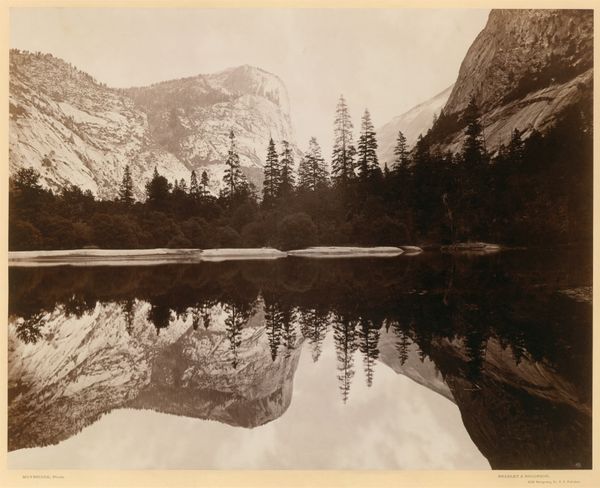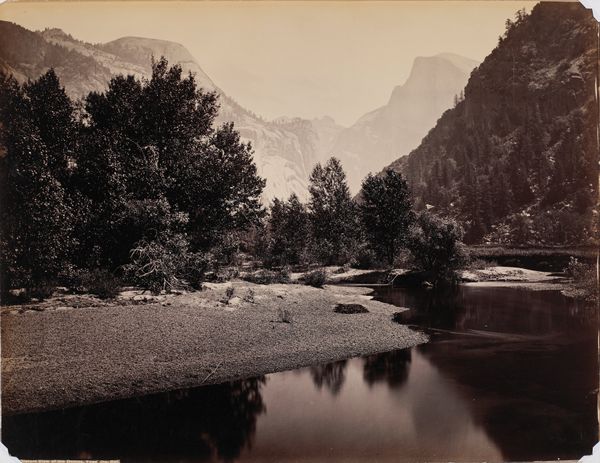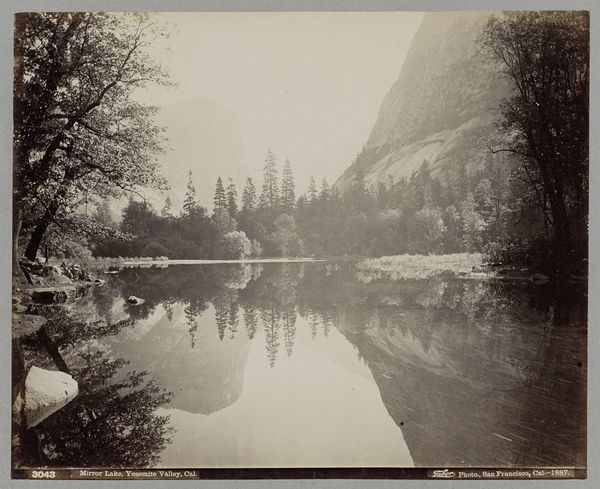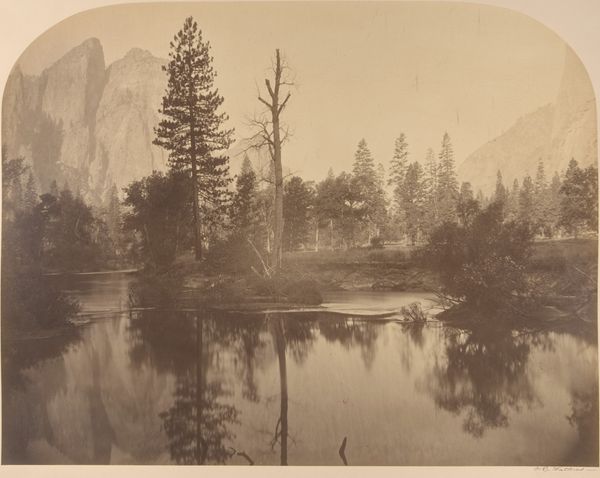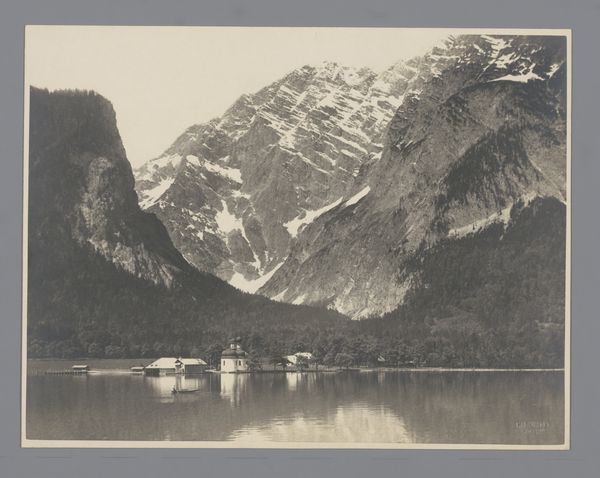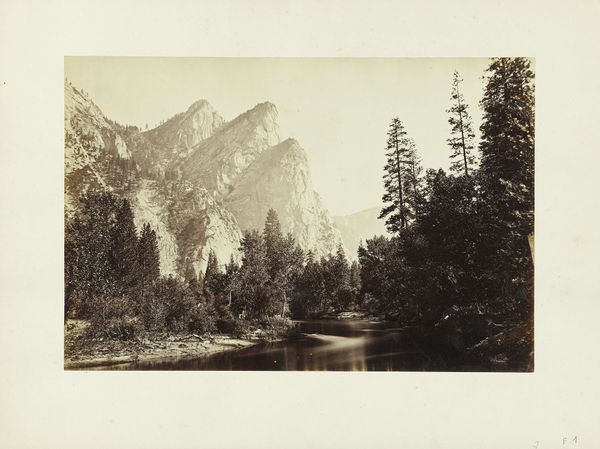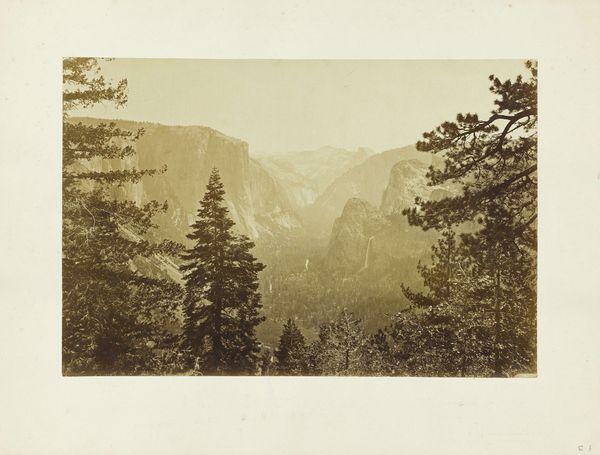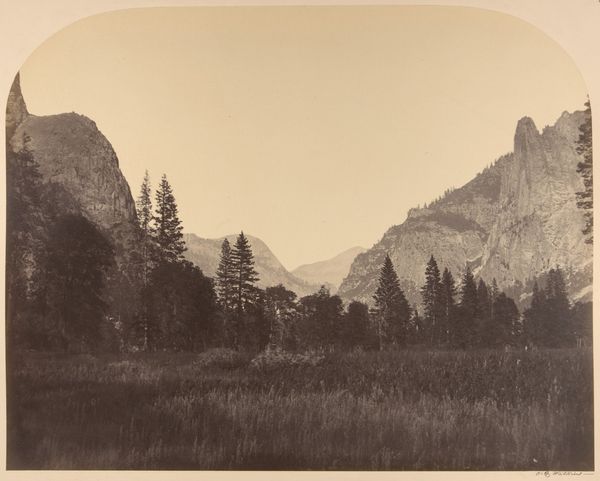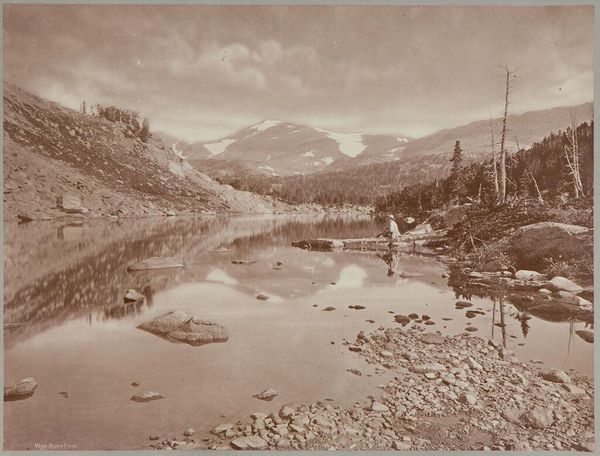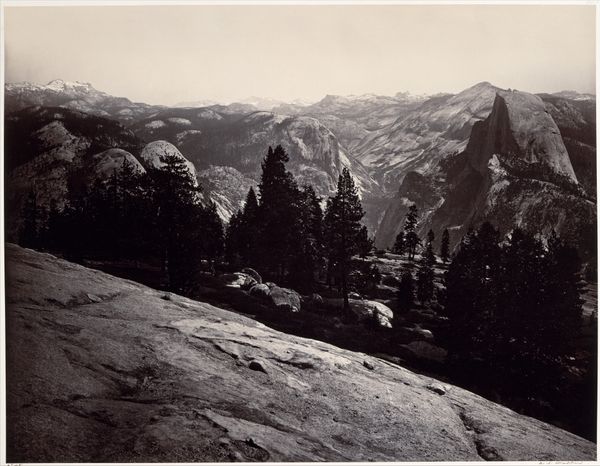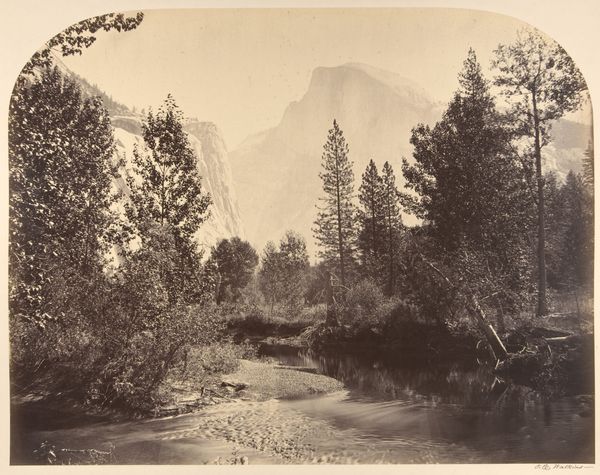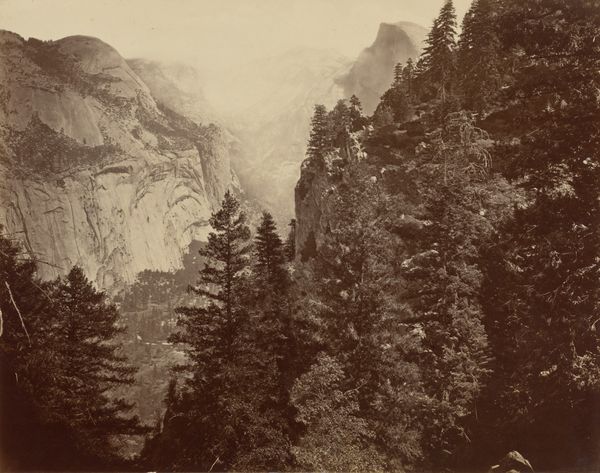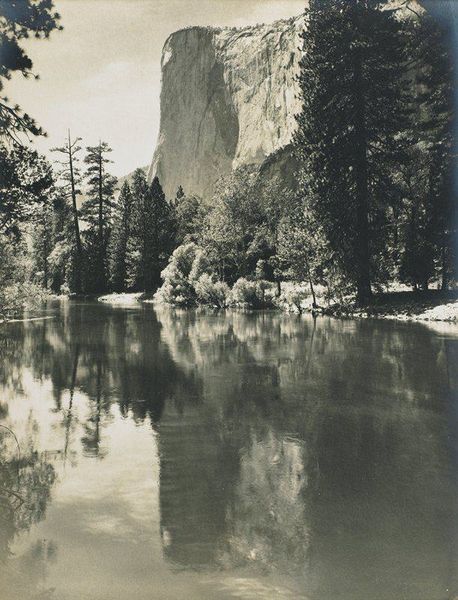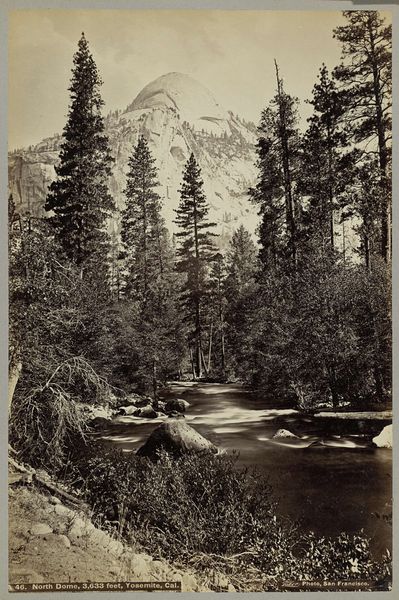
gelatin-silver-print, photography, gelatin-silver-print
#
gelatin-silver-print
#
pictorialism
#
landscape
#
nature
#
charcoal art
#
photography
#
gelatin-silver-print
#
united-states
#
nature
Dimensions: 7 1/2 x 9 7/16 in. (19.05 x 23.97 cm) (image, sheet)
Copyright: No Copyright - United States
Curator: Willard E. Worden’s “Mirror Lake,” a gelatin-silver print created around 1910, offers us a serene landscape scene, now part of the Minneapolis Institute of Art's collection. Editor: There's an undeniable stillness to this image. The monochromatic palette certainly lends itself to this atmosphere of quiet reflection, both literally in the mirroring effect and figuratively in the contemplative mood it evokes. Curator: Worden’s engagement with Pictorialism is apparent here, don't you think? It's more than a simple representation; it aims to create an emotional resonance. It was an attempt to claim photography as fine art alongside painting and sculpture, so its social implications were pretty bold at the time. Editor: Absolutely, and that aspiration shines through. Consider the choice of subject – untamed nature—especially through a male gaze; there is always the underlying subtext of human relationship and power dynamics inherent when you're depicting nature as the sublime Other. Do you get what I'm trying to say? Curator: Perfectly. Think about how anxieties around industrialization and urbanization shaped this fascination, or rather a kind of escape, through landscape photography at the turn of the century. The politics of this supposed idyll speaks volumes about American ideals and power structures. It still impacts our contemporary dialogues. Editor: Looking at it through that lens brings a new dimension. Worden positions us to think about the impact of preservation efforts during the Progressive Era, where, on one hand, preservation created national treasures, while it displaced communities and often neglected marginalized people in favor of preserving 'nature' in its "pure" form. Curator: And it’s also striking how much the aesthetic values associated with this type of image have been ingrained within popular culture, which reinforces those historical politics and power relations. The picturesque—and, let’s be honest, quite exclusive—ideal it propagates. Editor: I suppose analyzing "Mirror Lake" provokes some deep questions about both beauty and power, doesn't it? A seemingly tranquil image has led us down an intriguing historical path.
Comments
No comments
Be the first to comment and join the conversation on the ultimate creative platform.
